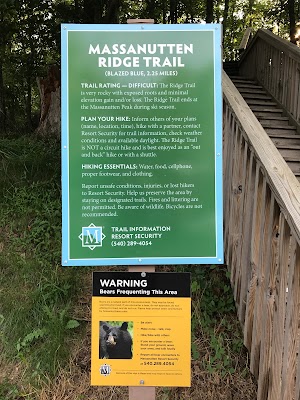Traditional Tuareg Camps (Campements traditionnels touaregs)
Overview
The **Traditional Tuareg Camps** in the **Kidal Region of Mali** are a captivating destination that offers foreign tourists an unparalleled glimpse into the life and culture of the Tuareg people, a Berber ethnic group renowned for their rich heritage and nomadic lifestyle. Nestled in the heart of the Sahara Desert, these camps serve as living museums, preserving centuries-old traditions and customs while showcasing the remarkable adaptability of their inhabitants.
The history of the Tuareg Camps is intricately woven into the broader narrative of the Tuareg people, who have traversed the harsh landscapes of the Sahara for millennia. Known as skilled traders and expert navigators of the desert, the Tuaregs played a vital role in trans-Saharan trade, linking West African kingdoms with North Africa and the Mediterranean. Despite facing modern challenges, many Tuareg communities continue to uphold their nomadic way of life, moving with the seasons to find pasture and water for their livestock.
The significance of the Traditional Tuareg Camps lies in their status as cultural bastions amidst the encroaching forces of modernity. While these camps are often temporary, relocating based on resource availability, they are meticulously crafted. Traditional Tuareg tents, known as **'Ehenghat,'** are made from materials such as animal skins and woven mats, demonstrating the ingenuity and resourcefulness of the Tuareg people. Their design allows for easy assembly and disassembly, perfectly suited to a nomadic lifestyle.
Upon arriving at a Traditional Tuareg Camp in the Kidal Region, tourists are immediately enveloped by a sense of timelessness and tranquility. The camps are typically nestled within breathtaking desert landscapes, featuring expansive sand dunes and awe-inspiring rock formations that create a stunning backdrop. The sky transforms into an ever-changing canvas, presenting spectacular sunsets and an unparalleled view of the stars at night, free from the light pollution found in urban areas.
One of the most enriching aspects of visiting a Tuareg Camp is the opportunity to interact with the Tuareg people and gain firsthand insight into their customs. Visitors can observe traditional crafts such as silverwork, leatherwork, and the creation of intricate Tuareg jewelry, which is known for its symbolic meanings. The Tuaregs are also celebrated for their indigo-dyed garments, earning them the nickname **'Blue People'** due to the distinctive color that often transfers to their skin.
Music and storytelling are integral to Tuareg culture, and visitors to the camps can often enjoy traditional performances. Instruments like the **'Tende' drum** and the **'Imzad,'** a single-stringed instrument, are commonly played, accompanied by hauntingly beautiful vocal harmonies. These performances not only entertain but also convey stories of Tuareg history, mythology, and daily life, offering a deeper understanding of their vibrant cultural heritage.
The Tuareg cuisine is another highlight for tourists. Meals often feature **'Taguella,'** a flatbread baked in sand, served alongside rich stews made from goat or lamb. Fresh dates and goat milk are staples, and the sharing of meals is an important cultural ritual. Hospitality is a cornerstone of Tuareg society, and visitors are typically welcomed with warm, open arms, invited to sit and partake in the communal experience of a traditional meal.
A visit to the Traditional Tuareg Camps in the Kidal Region also serves as an educational journey, shedding light on the environmental and social challenges faced by the Tuareg people. The harsh desert climate poses constant threats, and modern socio-political issues have further complicated their traditional way of life. Despite these challenges, the Tuaregs exhibit remarkable resilience, adapting to changing circumstances while striving to preserve their heritage.
For foreign tourists, the experience of staying in a Traditional Tuareg Camp is both humbling and enriching. It offers a rare opportunity to disconnect from the hustle and bustle of modern life and immerse oneself in a culture that remains intimately connected to the rhythms of nature. The serene beauty of the Sahara, combined with the rich traditions of the Tuareg, creates an unforgettable travel experience.
In conclusion, the **Traditional Tuareg Camps** in the Kidal Region of Mali stand as a testament to the enduring spirit of the Tuareg people. They provide a unique, immersive experience for foreign tourists, offering valuable insights into a way of life that has withstood the test of time. Visitors leave with not only beautiful memories of stunning desert landscapes but also a profound appreciation for the resilience and rich cultural heritage of the Tuareg people.



